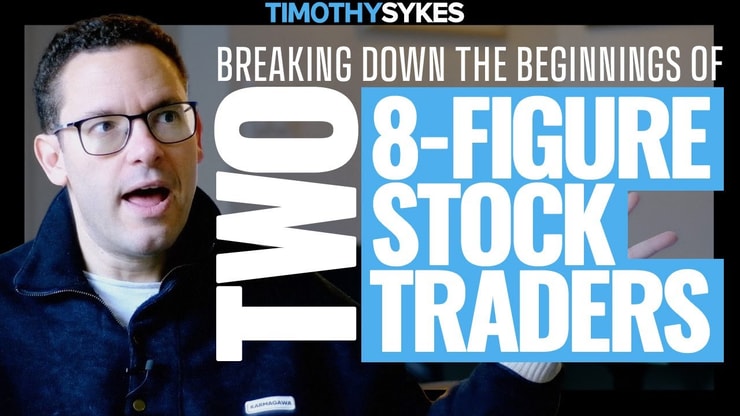Each day is a fresh chance to capitalize on opportunities…but some days don’t play out as expected.
The quicker you accept this, the less frustrating it’ll be.
Yesterday proved to be one of those days.
After Kerrisdale Capital’s updated short report on AI, the shorts launched a full-scale attack on the AI sector, sending recent runners like AI, GFAI, BBAI, SOUN, and AMST into a tailspin.
I attempted to dip buy on BBAI, but the selling pressure was relentless.
In hindsight, waiting for a bigger panic would have been the smarter move.
Today I want to talk to you about four things you can do to stay out of danger and avoid the temptation of trading when there isn’t much going on.
Table of Contents
Review & Analyze Past Trades

I tell my students to review and analyze their trades daily. Heck, after +20 years of trading and millions in trading profits to show for it…I still find time out of my busy schedule to review and analyze my trades.
When I’m doing this, I’m looking for patterns or trends that can help me identify areas of improvement.
For example, last Friday, I had an amazing trade in GFAI, utilizing my weekend strategy. Knowing that the pattern worked, I’ll focus again on it this coming Friday.
In addition, I’m reviewing catalysts and patterns and determining which ones work best in the current market environment.
I’m looking at the time of day and trying to see if mornings are playing out better than afternoons.
I’m reviewing my execution and trying to decipher if I’m jumping into trades too fast, giving them enough time to work, and cutting losses quickly.
None of this stuff is fun, but it helps me get clarity and focus.
Study

Over the years, I have put together hundreds of hours of training material. New challenge subscribers often want to know the best videos to watch. But there is no shortcut.
You can’t skip steps.
Study everything…twice.
Again, that’s probably not what you want to hear. But the truth is, my best students studied like crazy their first couple of years. Many of them weren’t even profitable after year one.
Try to get in an hour or two of studying each day. If there isn’t any good action in the market, then take the time to sneak in a study session.
@traderstudent4 I hope you have a GREAT weekend, but also STUDY HAAAAAAARD! And tell me how many hours you're going to put into your financial education this weekend?
Read the Complete Timothy Sykes Penny Stocks Course Book yet?
— Timothy Sykes (@timothysykes_xx) April 2, 2023
More Breaking News
- Allegiant Travel Boosts Market Confidence with Strong Financial Projections
- Eos Energy Stock Faces Turbulence As Chief Commercial Officer Sells Shares
- Director’s Major Share Sale Stirs Market for RXRX
- CoreWeave Faces Class Action Lawsuit Amidst Revenue Impact Concerns
Review Trades You Missed

One of the best ways to learn is to study trades from other successful traders. Try to figure out what they saw in the trade, what goes through their mind, and if there are any takeaways you can take from them.
My goal is to develop self-sufficient students. So when I say study someone else’s winning trades, I’m not saying that for you to become a copycat trader.
I want you to observe what they’re doing and see if you can get any insights to help your trading.
Another thing you can do is look at the top movers for the day. Find the stocks with the biggest moves and figure out why.
- Is there a new catalyst emerging?
- Was it a short squeeze?
- Are there potential sympathy plays to trade?
- Should I create a watchlist based on this sector?
- Are there levels you would consider buying?
You’ll put yourself in a good position once you know what traders are reacting positively and negatively towards.
Work On Your Mindset

I always tell my students to think like they’re retired traders.
Only jump back into the market if you see a trade so compelling…you’d feel bad for not being involved.
This mindset helps me stay more disciplined.
Another thing I like to do is go over my rules to make sure my actions align with them.
For example, my number one rule is to cut losses quickly. I tell this to my students all the time, and you’ll hear me say it on social media.
If I’m known as the guy who cuts losses quickly…guess what I need to do?
I have to stay true to my words.
Taking something difficult and making it part of my identity as a trader (someone who cuts losses quickly)…I’ve put myself in a strong mindset.
You’ve got to tell yourself that success as a trader doesn’t happen in a straight line. Focus on the process of learning and developing your skills.
Make acquiring knowledge the goal. And be prepared not to make money for a while.
If you want help developing those skills…click here for more information.
P.S. Find out why this is one of my favorite strategies right now.











Leave a reply